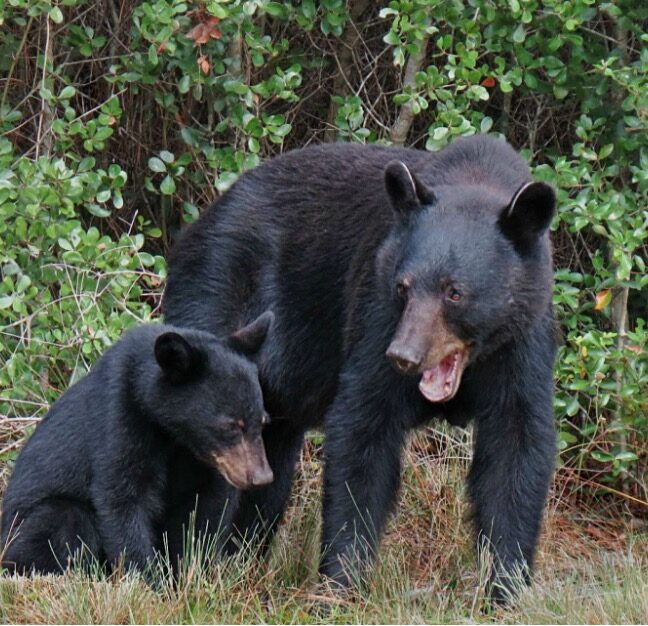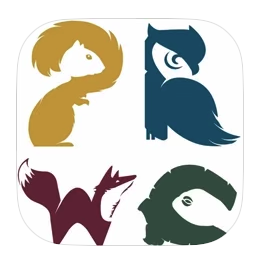
The largest reptile zoo in the world calls Southwest Florida home, thanks to one man’s vision.
Ty Park’s passion is reptiles. He is also passionate about conserving them and educating the public, which is why he opened Iguanaland three years ago on rural acreage in Punta Gorda.
Billed as the largest reptile zoo in the world, there are more than 250 species of reptiles on exhibit, many of them endangered or critically endangered. He has about 2,000 animals in total, nearly all from his private collection.
Park is a herpetologist, entrepreneur, self-made millionaire, and, by his own definition, a workaholic. The collector is highly respected by zoos across the country, which loan/donate their reptiles to him and whom he supplies with animals for some of their reptile departments. He partners with them in research and breeding and conservation programs. He works with universities and scientists, and students come to the facility for research.
Many members of the public have negative perceptions about reptiles, Park said. They dislike, fear, and even hate the creatures. The bias has persisted for centuries, even found in the Bible, he said (think of the serpent in the Garden of Eden).
“They’re basically the underbelly of society,” he said. “I want to change that.” One of the ways to help is to take his collection, which has brought him much joy throughout his life, and share it with the public, he said.
Guests can even interact with some of the animals. He also has ambassador animals that go on outreach trips to schools or are available for events held at the zoo, birthday parties, “animal encounters,” and others.
“Kids get to come and touch a 10-foot snake. Where can you go and do that?” he asked. If people can feel and hold them, they may still dislike reptiles afterward, “but at least they’ll understand them a little better before they leave,” Park said. Then they may be willing to try to conserve them, he said.
Park understands that in Southwest Florida, invasive species like green iguanas and Nile monitors can be nuisances and destroy property. Nile monitors can be a threat to wildlife. But humans are the reason they are here, he said. People brought them here as pets and then released them when they got too large. The reptiles can also come in with cargo, such as reptile eggs in the soil of potted plants.
“I hate to say this, but the world got smaller” and there’s a lot of import-export, he said. “It’s inevitable that exotic animals come here from other countries,” he said. “We have to understand that and manage that as best we can.”
“Philly,” (below) a is Cuban iguana hanging out nonchalantly in the arms of Anna Meyer, operations manager of Iguanaland.
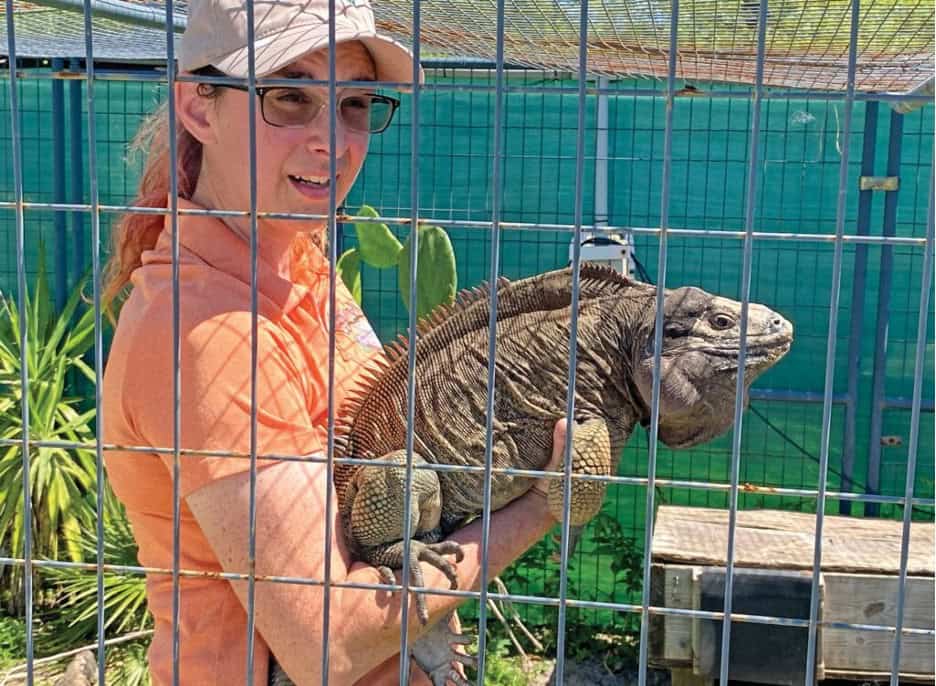
Philly had just come back from an outreach trip to Punta Gorda Middle School, said Meyer, who is also head of education outreach programming.
Conservation is key to his mission, Park said. Through the years he has already contributed $800,000 to conservation and research for reptiles, he said. This year, his Iguana Conservation Fund has committed to providing $500,000 for the same purpose.
The zoo has a wide diversity of creatures. About half are turtles and tortoises and about another 10 percent are snakes. There are about 46 iguanids (iguana species), 43 of them endangered or critically endangered, Park said.
Perhaps the most endangered of the iguanas is the Anegada Rock Iguana (Cyclura pinguis shown above), which comes from Anegada Island, part of British Virgin Islands in the Caribbean. There are only about 300 left in the wild, Park said. There are only 10 of the Anegada iguanas in the United States, and he has five of them, three of them females. They are working with the Fort Worth Zoo to breed them.
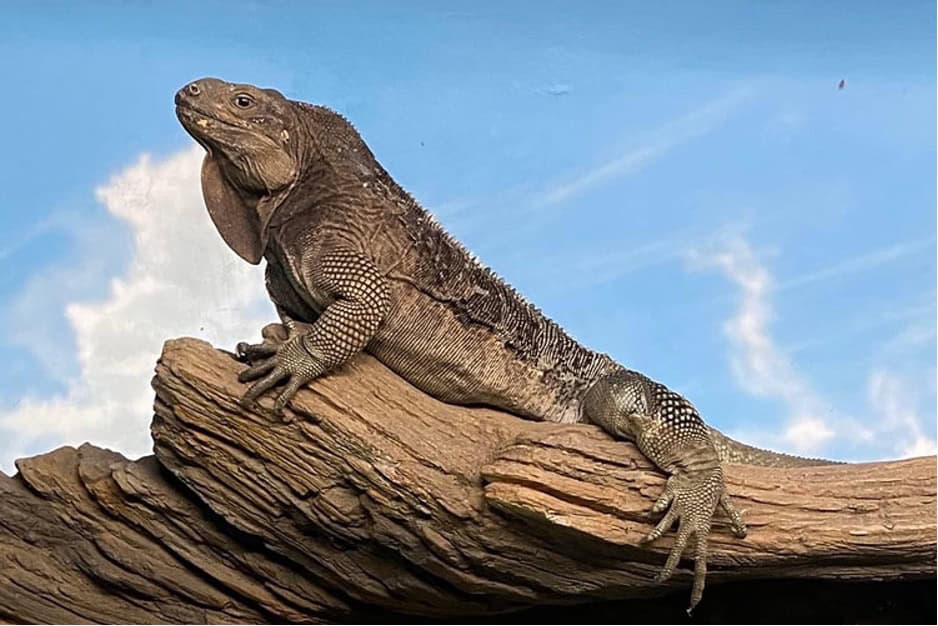
Donkey Kong (above), a Rhinocerous iguana, was once the pet of Ty Park. They would watch movies together and eat popcorn, Park said. “He was like a dog.” Donkey Kong is now more than 30 years old.
There is also an Aldabra tortoise named Aly, about 40 years old. A member of the second-largest tortoise species in the world, the friendly goliath loves to be fed treats and enjoys being scratched under the chin by keepers.
A perentie named Irwin, the largest monitor lizard from Australia, is another highlight. The perenties are typically between 6 and 7 feet long. And the Madagascar giant day gecko looks suspiciously like the star of commercials for a well-known insurance company.
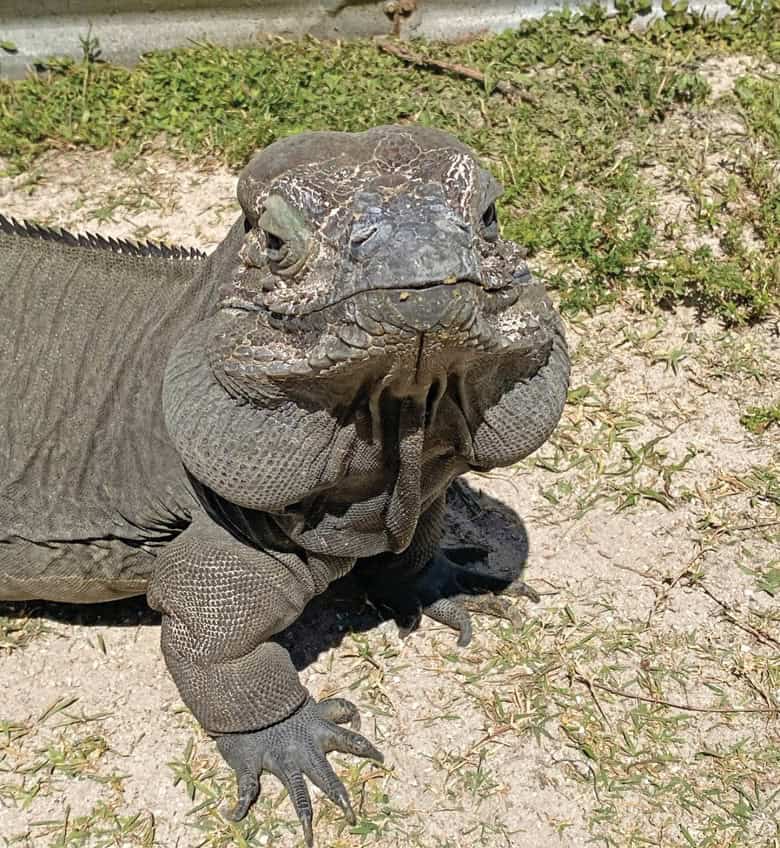
Park, 71, is as fascinating as the residents of his zoo. He is quiet and unassuming, but with an energy and enthusiasm for life and for reptiles that comes from a man who has followed his dream.
He traces his passion back to his childhood in South Korea when his father gave him a turtle at age 6. “I fell in love with it,” Park said. “I was obsessed with it. I would come home from school and watch it swim.”
He also began to collect reptiles and fish. “My room had a bed and a desk and floor-to-ceiling reptiles and fish,” he said. “Growing up, I always wanted to be a zoo director.”
He considers himself a compassionate person who would always go out of his way to help animals, particularly to rescue them. In South Korea, where there are live fish markets, he would buy a bucket of live fish and go and release them back into the river, Park said.
He enrolled in college as pre-med student but ultimately changed his course of study to zoology.
He realized that the best place to keep his reptiles was in Florida and started in Punta Gorda in 2007 as a private zoo, mostly breeding rare reptiles and selling them on the collectors’ market, putting the profits toward conservation.
In 2018, he decided to open his private zoo to the public, and despite charging admission and hosting special events (birthdays, etc.), he still supports it with his own funding.
Iguanaland is categorized as an agritourism business. Park has seven employees, including several keepers. “They are amazing,” he said. “We are like family.”
Park said his father told him to live his life in thirds. For the first third, “Be humble; learn as much as you can,” Park said. “Be a student of life.”
For the second third, “Work as hard as you can and earn as much as you can,” he said.
For the last third, “Give it all away,” Park said. “Do something good. Leave more than you take. Do something positive for society.”
Iguanaland is his way of doing just that. “This is my legacy,” he said.
[box next section with location info]
Iguanaland is located at 33900 Bermont Road in Punta Gorda,
and is open daily from 10 a.m. to 6 p.m.
The admission fee for adults is $25, for children (2 to 12) $15, and for seniors 65-plus, active military, veterans’ health care workers, emergency services personnel, and students and teachers with ID $20.
The phone number is (941) 844-5350.
Editor’s note: I personally have visited Iguanaland, and although not normally a fan of all things reptile, I thoroughly enjoyed my visit. It gave me a new perspective of our not so “warm and fuzzy” Florida inhabitants.




